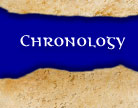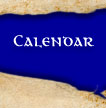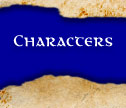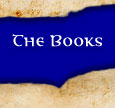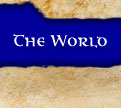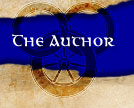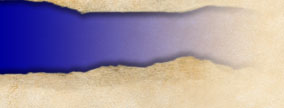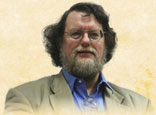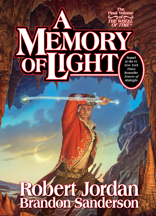Big Wheel: Our Interview with Robert Jordan (Amazon.com)
Robert Jordan—Citadel graduate, decorated Vietnam veteran, and physicist by education—is only steps away from Tolkien as the most popular fantasy author in history. His bestselling Wheel of Time series tells the story of a world broken into a male-female duality. Women wield the One Power, safeguarding it against the darkness until the male Dragon Reborn appears as foretold by prophecy. Each of the eight (so far) books in the series is a complex, detailed history of a fully realized culture. Enthusiastic readers have filled our pages with their comments, and Web sites around the world extol the virtues of Jordan and his creations. Amazon.com's Therese Littleton spoke with Jordan about his fans, his books, and his inspirations.
- Amazon.com: The Wheel of Time has been called the best fantasy epic of all time, and you've been compared with legendary fantasist J.R.R. Tolkien. How do you deal with all this adulation?
- I grin nervously a lot. It's very nice. But my high school football coach gave me one of the best pieces of advice that someone in my position can have. He said, "Saturday morning, you can read the newspaper and you can believe how good they say you are. Monday, when you come to practice, nobody knows your name, and you have one week to get ready for the only game you'll ever have to make a reputation." So it's very nice to look around and have people pat me on the back and say, "Oh, you're wonderful, you're great, you're tremendous," but I know the end of this. I go and sit in front of the computer, and nobody knows my name, and I have one book to try and make a reputation.
- Amazon.com: One of the things that sets you apart from many other fantasy authors is your command of plot. Your stories are intricate and full of hidden puzzles. How did you learn to write like that?
- I don't know. I read. I never took a course in writing of any sort. The only literature courses I ever took in college were required courses, since my degrees were in physics and mathematics. I never wrote anything that wasn't required until I was 30. I knew that I wanted to write one day. I knew that from the age of 5. But that was someday, after I had a stable career. And then 30 came, and I sat down and started writing. Where any of it came from, I don't know. At that point, from 30 years of reading everything I could get my hands on.
- Amazon.com: There are a lot of battles, wars, and great conflicts in your books. Did your military experiences influence that part of your writing?
- To some extent, but mainly the thing that comes out of my experiences in the military is that I know what it's like when someone is trying to kill you. And I know that being in a battle is confusion. You know what you can see; you don't know what is happening beyond your sight. That's what comes from the military. To tell you the truth, the battles aren't nearly as interesting as the people. I like the interactions of the people--the character development, the way people play off one another.
- Amazon.com: It seems that some of your readers don't think of your novels as fantasy so much as a really fine-grained history of a world that might have existed or might yet exist. Do you perceive your world as real?
- I think that I have to. Any writer has to try and think of his world as real, because if he thinks of it as a construct, that's going to come across to the readers. It's very much like the question I'm often asked: who is my favorite character. It's whoever I'm writing at the moment. Even someone like Padan Fain or Semirhage. Most people like themselves, and if I don't like the character I'm writing, then it's going to come across to the reader that this character doesn't like himself or herself. My wife says she can tell when I've been writing Padan Fain or somebody like that when I come into the kitchen in the evening. I make myself see this as a real place when I'm working on it. That way it comes through, I hope, that I see more than I write.
- Amazon.com: Are there particular historical eras that influence your stories?
- Well, to give you an example of the way these things work... the Aiel. They have some bits of Japanese in them. Also some bits of the Zulu, the Berbers, the Bedouin, the Northern Cheyenne, the Apache, and some things that I added in myself. They are in no way a copy of any of these cultures, because what I do is say, "If A is true, what else has to be true about this culture? If B is true, what else has to be true?" And so forth.
- In this way I begin to construct a logic tree, and I begin to get out of this first set of maybe10, maybe 30 things that I want to be true about this culture. I begin to get around an image of this culture, out of just this set of things, because these other things have to be true. Then you reach the interesting part, because this thing right here has to be true, because of these things up here. But, this thing right here has to be false, because of those things up there. Now, which way does it go, and why? You've just gotten one of the interesting things about the culture, one of the really interesting little quirks.
- To me, that in itself is a fascinating thing--the design of a culture. So that's how the Aiel came about. There are no cultures that are a simple lift of Renaissance Italy or 9th-century Persia or anything else. All of them are constructs.
- Amazon.com: Are there any characters in the books that are based on historical figures?
- No. The groups are sometimes in ways based on historical organizations. The White Cloaks have a lot of, say, Teutonic Knights. The Aes Sedai organization comes from the way convents were organized between A.D. 1000 and 1800, a time when there was real political power behind convents.
- There is one real-life individual who has contributed a lot. My wife has given me, involuntarily, at least one major character trait for all of the major female characters in the books. I'm very mean to her, I won't tell her which character traits I have taken.
- Amazon.com: That's probably wise.
- As she has pointed out to me, she knows where I sleep! So I consider it wise not to upset her, if I can avoid it.
- Amazon.com: The women characters in your books are really interesting, not at all the cardboard cutouts that appear so often in fantasy. Did you do that consciously?
- In part. In this world, given the history that divides this world, women had to have real political power. But on the other hand, I simply consider women to be more interesting if there's more about them to be interesting. A real live Barbie might be a lot of fun for a weekend if you're 22, but after that there's not much to it. Empty calories.
- They are complex women, strong women, the sort of women I've always found interesting. As my grandfather said, "Boy, would you rather hunt rabbits or leopards?" No choice there.
- Amazon.com: Is it ever hard for you to write?
- No... it's hard for me not to write. I'm on tour, so I don't have time to write, but I have my computer with me because maybe I'll have time. Maybe. And the notion that I would have the time and not be able to work is horrifying.
- Amazon.com: What kind of books do you like to read while working?
- If something doesn't appeal to me, it goes away. If it doesn't turn out to be as good as I thought it was, it goes away. I don't have time to read books through when they no longer measure up. But everything... mysteries, Westerns, science fiction, nonfiction of all sorts. I've been recommending Jared Diamond's Guns, Germs, and Steel to everyone, and I'm reading a James Patterson mystery right now, and getting ready to read Patrick O'Brian's The Hundred Days... Hornblower meets Jane Austen.
- Sometimes I'll just dig out one of the old Jane Austen or Charles Dickens books and read that, because I love those books. Or John D. MacDonald. My favorite authors are Robert Heinlein, John D. MacDonald, Louis L'Amour, Jane Austen, Charles Dickens, and Mark Twain. These are the people I can pick up and read any time. And you have to throw Montaigne in there as well, but essays are a different sort of thing.
- Amazon.com: What's your writing day like?
- Breakfast, answer the mail, answer phone calls, then sit down and start writing. I don't stop until lunch. About six or seven in the evening I quit and go in for dinner. If the book is really going hot, I might work later. It's eight or nine hours of writing, usually, and I do that seven days a week. If I decide to take a day and go fishing, since I know I don't do that very often, I don't mind doing that.
- Amazon.com: You've got an especially enthusiastic readership. How do you deal with people who take your books too seriously?
- Depends on what they're writing to me about. I explain that no, there really isn't a One Power, there is no ability to channel, and I cannot teach you these things because they don't exist. And I'm not a guru, I'm not a spiritual leader, do not quit your job. I will not allow you to sit at my feet. Go on with your life. But I don't read a lot of fan comments. I don't go on the Web. I don't pay any attention to it.
- Amazon.com: What about people who have compared your books to the Koran or the Bible?
- I'm writing stories. I'm not creating a religion. I'm not starting a movement. I hope they're good stories and that they're entertaining people, but they're still just stories.
- Amazon.com: Are you going to take a break before starting the next book?
- Well, when I finish this tour, I will go home and have Thanksgiving, and then I'll start writing the next book. So I'll take a short break, then start on it.
- Amazon.com: You've said before that you know where this series is going to end.
- I've known the last scene of the last book for 15 years. I could have written it easily 15 years ago, and it would be only changes in the wording, not in what happens, from that to now.
- Amazon.com: So will the male-female duality be resolved? Or is this a "read and find-out" question?
- Read and find out. What I consider the major story lines will be resolved. There will be a number of minor story lines that will not be resolved, for the simple reason that there is no point to any real world where everything is resolved. That's always something that has irritated me about some novels--that you reach a point at the end of the book, and everyone's problems have now been solved, and all of the world's problems have been solved. I get the feeling I could put these characters and this world on a shelf and put a bell jar over them and go away. There's nothing left there alive.
- That's the way it's going to be. I even intend to set a small hook in the last scene.
- Amazon.com: Wow... you're going to drive people crazy!
- I know, I know. I've been thinking about getting some of those Groucho glasses with the mustache.
Home | Chronology | Calendar | Characters | The Books | The World | The Author
Contact Webmaster | Site Index | FAQ | Links | Return to Top

